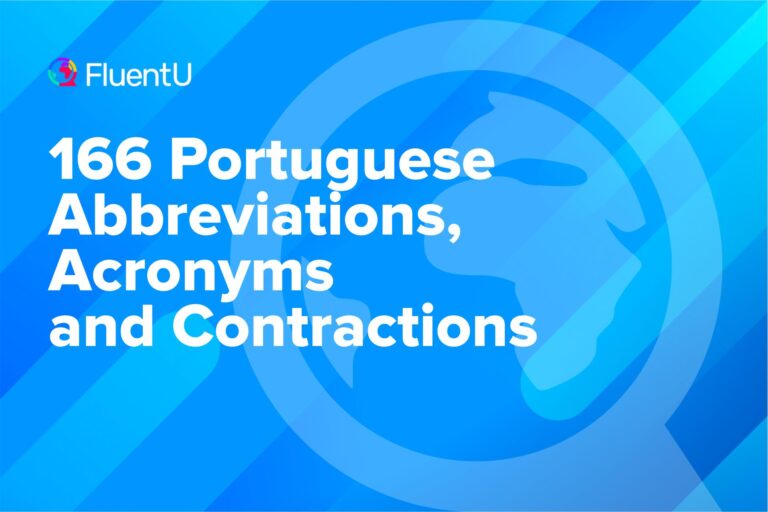How to Tell the Time in Portuguese

Do you always end up losing track of time and running late?
Maybe you’re too busy appreciating the here and now to make it to the next event on time. Or maybe you just aren’t all that worried about punctuality.
In this post, you’ll learn how to talk about time in Portuguese as well as some important time-related vocabulary so that you can start keeping track of time like a native Brazilian Portuguese speaker!
Download: This blog post is available as a convenient and portable PDF that you can take anywhere. Click here to get a copy. (Download)
How to Ask for the Time in Portuguese
Like all communication, talking about time is a two-way street. You have to be able to tell the time, but also be able to ask for the time.
Here are a few common ways that people ask for the time in Portuguese.
Common ways to ask “what time is it?”
Less common/colloquial ways to ask “what time is it?”
Note: The last two are colloquial ways to ask the time, and while you may hear them spoken (especially in Rio de Janeiro), it’s very unlikely that you’ll ever see them written.
How to Say the Time in Portuguese
Learning Numbers and Key Vocabulary
The very first step towards saying the time in Portuguese is getting a good grip on Portuguese numbers. If you’re feeling ambitious today, why don’t you give a go at learning 1 to 100!
After you know your numbers (at least from one to 12), you’ll then want to learn the following terms to talk about time in Portuguese:
Hora (Hour)
Minuto (Minute)
Segundo (Second)
Relógio (Watch/Clock)
Remember, in Portuguese, each noun has a gender.
For the above nouns and most others, an o at the end indicates it’s masculine, and an a indicates it’s feminine.
Now all that’s left is to take your newly mastered numbers and start forming sentences!
Conjugating the Verb Ser
Did you recognize the verb used in the previous section on how to ask for the time in Portuguese? Both são and é are conjugations of the irregular verb ser . When using this verb to tell time, all you really need to know is whether the hour is singular or plural.
When singular use é:
É uma hora. (It’s one o’clock.)
If the hour is plural (aka anything other than one o’clock), use são:
São quatro horas. (It’s four o’clock.)
São oito horas. (It’s eight o’clock.)
Often Portuguese-speaking countries use a 24-hour clock to tell time. In this case, for times after 12 p.m., you’d add 12 to the hour.
São dezesseis horas. (It’s sixteen o’clock. → It’s 4 p.m.)
São vinte horas. (It’s twenty o’clock. → It’s 8 p.m.)
This 24-hour clock is often used in formal situations and in written Portuguese, such as when posting store hours.
How to Tell Time by the Minute in Portuguese
When you want to be more specific, there are plenty of ways to tell time by the minute, half-hour, quarter-hour, etc. Take a look at the examples below to see how you can be more exact when telling time in Portuguese:
To do this, simply add e and the number of minutes:
São quatro horas e quinze. (It’s four fifteen.)
You can also leave off the horas as in:
São quatro e quinze. (It’s four fifteen.)
Let’s have a look at a few more examples:
São oito e dez. (It’s eight ten.)
São cinco e quarenta e cinco. (It’s five forty-five.)
São nove e trinta. (It’s nine thirty.)
While it’s totally acceptable to say nove e trinta, more often people will say e meia instead of trinta .
São nove e meia. (It’s nine thirty.)
São sete e meia. (It’s seven thirty)
On the other hand, if the time is exactly on the hour, you can emphasize this by using em ponto .
São onze horas em ponto. (It’s eleven o’clock exactly. Literally, this means, “it’s eleven o’clock on the dot.”)
Finally, sometimes in Portuguese, when the time is nearing the next hour, people will count backward from that hour.
This is similar to English when people say “five to nine.” This is done by using the phrase para as as in:
São cinco (minutos) para as nove (horas). (It’s five (minutes) to nine (o’clock).)
In this case, using the words minutos and horas is completely optional.
Let’s check out some more examples:
São quinze para as três. (It’s fifteen to three.)
São dez para as seis. (It’s ten to six.)
Essential Vocabulary to Use While Telling Time in Portuguese
Chances are when traveling to a Portuguese-speaking country and talking about the time you’re going to want to be able to put everything into context. From scheduling that forró lesson for tomorrow afternoon to telling a new friend to drop by for caipirinhas at 10 p.m., it’s a good idea to learn how to talk about the time before you travel.
To prepare for your trip, you could try learning some basic phrases for telling the time in Portuguese on a language app or, for extra support, you could try a language learning program like FluentU.
FluentU offers an array of authentic Portuguese videos—like music videos and interesting talks—with interactive subtitles that you can use to check the meaning of any new vocabulary. You can even use the contextual video dictionary to find other videos where specific terms like the ones mentioned in this post are used in context by native speakers.
Immersing yourself in native media will not only help you learn more phrases to tell the time in Portuguese, but will also help you understand how they are used by native speakers.
Here are some essential words and phrases to get you started:
Agora (Now)
Cedo (Early)
Tarde (Late)
Ao meio-dia (At noon)
À meia-noite (At midnight)
Da manhã (In/Of the morning)
Da tarde (In/Of the afternoon)
Da noite (In/Of the night)
Da madrugada (In/Of the early morning, before sunrise)
Use the words das and às to indicate starting and ending time.
O jantar começa às nove horas da noite. (The dinner starts at nine at night.)
O evento vai das três às dez. (The event goes from three till ten.)
To see more vocabulary and example phrases you can use to tell the time in Portuguese, check out the video below. There’s even a short quiz at the end of the video for you to test your new vocabulary!
Congratulations!
You now know all you need to proficiently tell time in Portuguese.
So, get out there and use your new icebreaker to start conversations, make friends and travel on towards fluency!
Download: This blog post is available as a convenient and portable PDF that you can take anywhere. Click here to get a copy. (Download)







